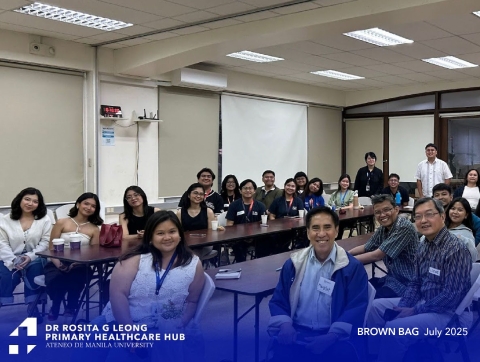Ateneo Policy Center hosts brown bag session on nursing crisis in the Philippines
24 Apr 2024

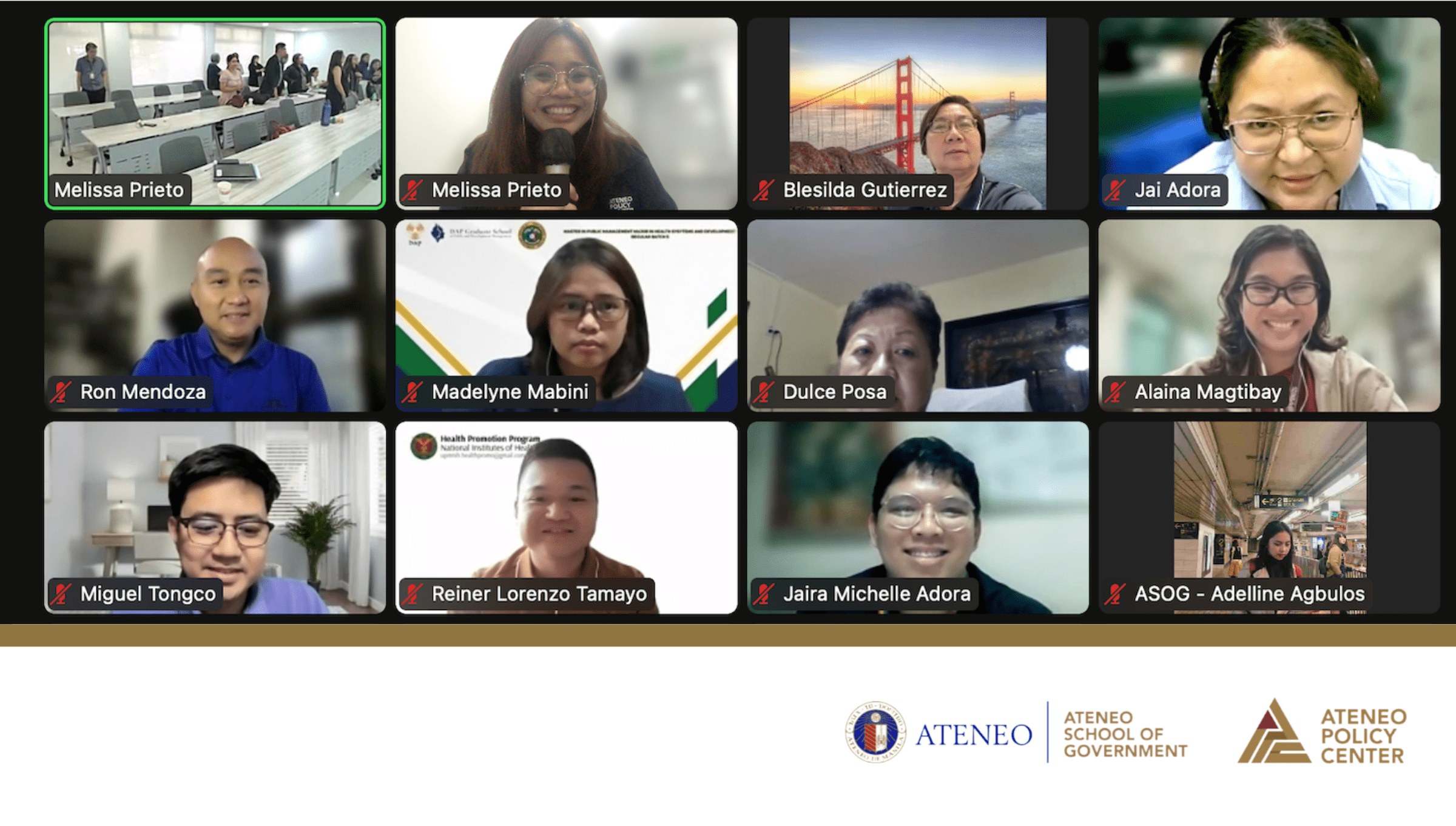
The Ateneo School of Government, through the Ateneo Policy Center (APC), organized the “Confronting the Care Crisis: A Brown Bag Session on the Nursing Crisis in the Philippines” last 18 April 2024 in a hybrid format.
The first study, “Confronting the Care Crisis: A Comprehensive Analysis of the Nursing Crisis in the Philippines,” was presented by APC’s Senior Research Fellow, Dr. Kenneth Y. Hartigan-Go. The study identifies the critical issues that compound the nursing shortage in the country and offers policy recommendations to resolve them.

Emphasizing the shortage of healthcare professionals in the Philippines, Dr. Hartigan-Go explained that the Philippine government is caught in a triple dilemma: a local nursing shortage, a retention struggle, and a nursing crisis crunch. He stressed how these manifest in the lack of a unified national nursing database, ambiguities in education, employment, and compensation, and the policy gaps of laws for healthcare workers and OFWs.
He then presented recommendations crucial to the issue, namely establishing a unified database for healthcare workers, pushing for the improvement of healthcare workers’ local working conditions, planning for re-entry and migration, considering the nursing shortage as a national security concern, and exploring the role of Bilateral Labor Agreements (BLAs) to strengthen human resources for health development.
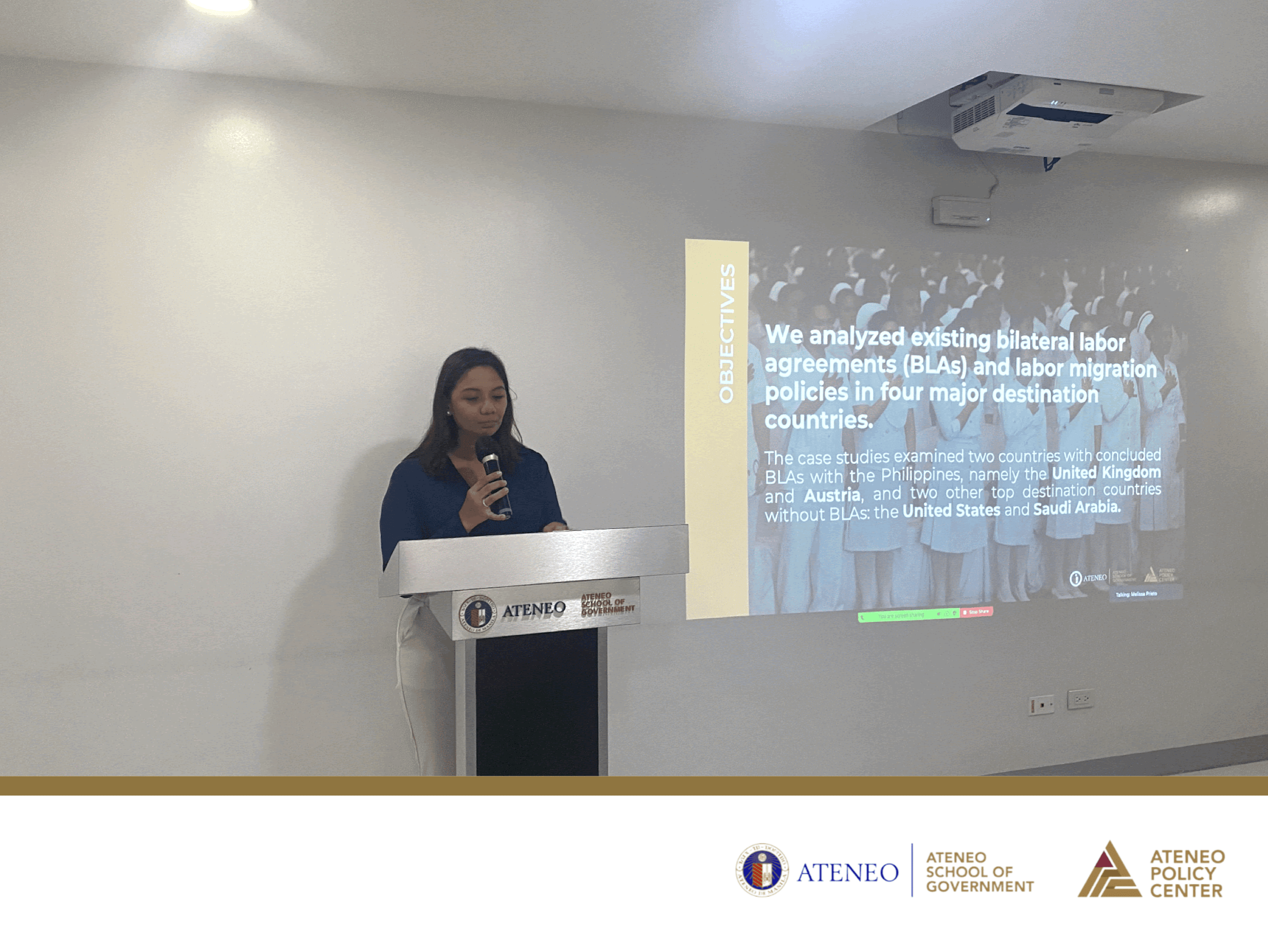
The second study, “Navigating the Nursing Exodus: Investigating Philippines’ Bilateral Labor Agreements on Nursing Migration,” was presented by the APC’s Health Government Team, Ms. Angel Faye G. Castillo, Ms. Ella Mae C. Eleazar, and Ms. Melissa Louise Prieto. The study analyzed existing BLAs and labor migration policies in four (4) major destination countries for nurses: United Kingdom, Austria, United States, and Saudi Arabia.
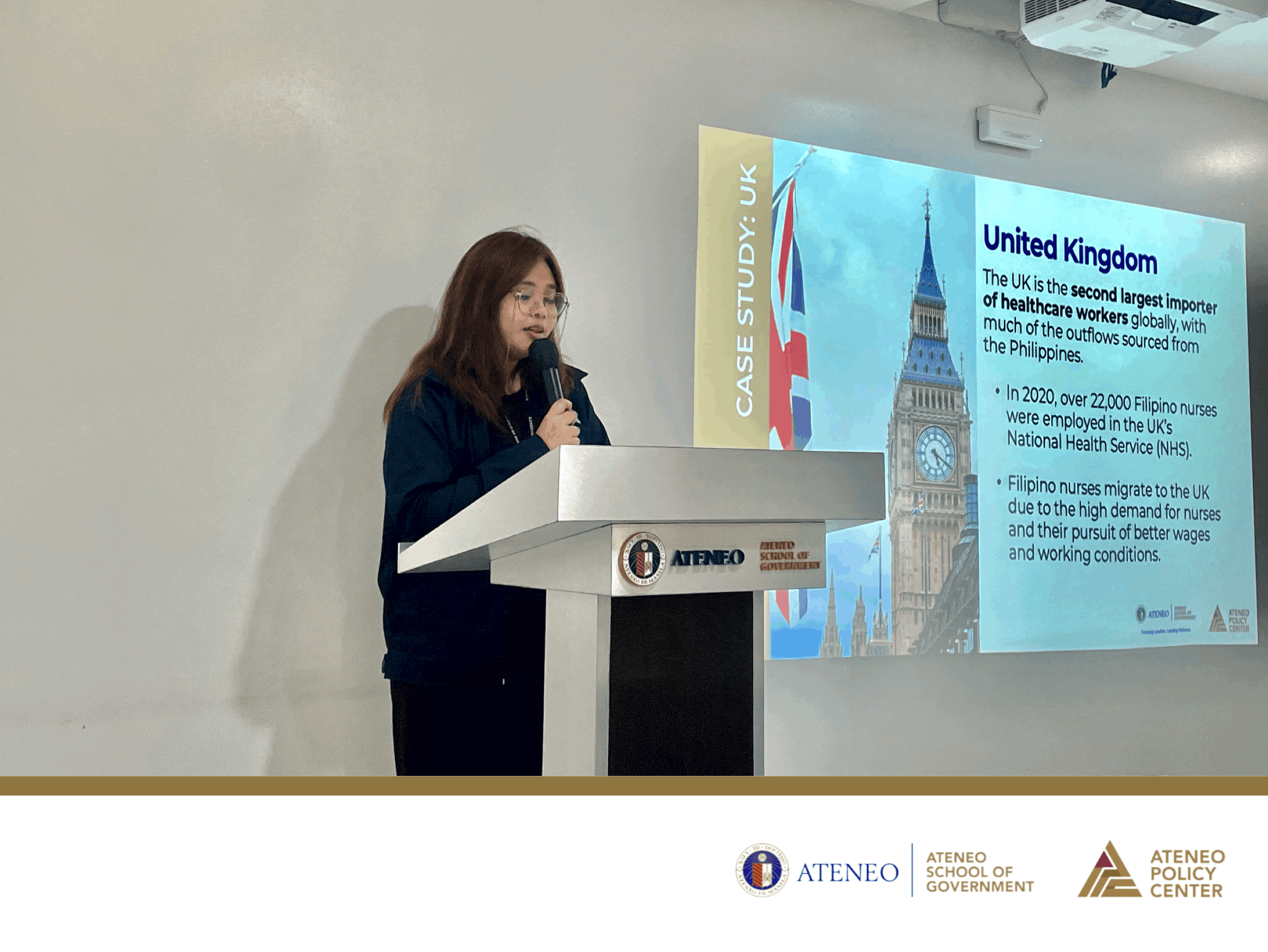
The team underscored the importance of BLAs as they regulate the recruitment process, set universal standards for fair treatment and adequate wages, compensate for the adverse consequences of outflow, and manage remittance returns. The team emphasized that the Philippines remains the largest exporter of nurses in more than 214 destination countries, yet only 79 BLAs were concluded in 2018. The team recommended several core provisions for BLAs in accordance with international labor and employment standards. Further emphasized is the importance of harmonizing existing repatriation and reintegration programs and strengthening institutional mechanisms for managing migration.
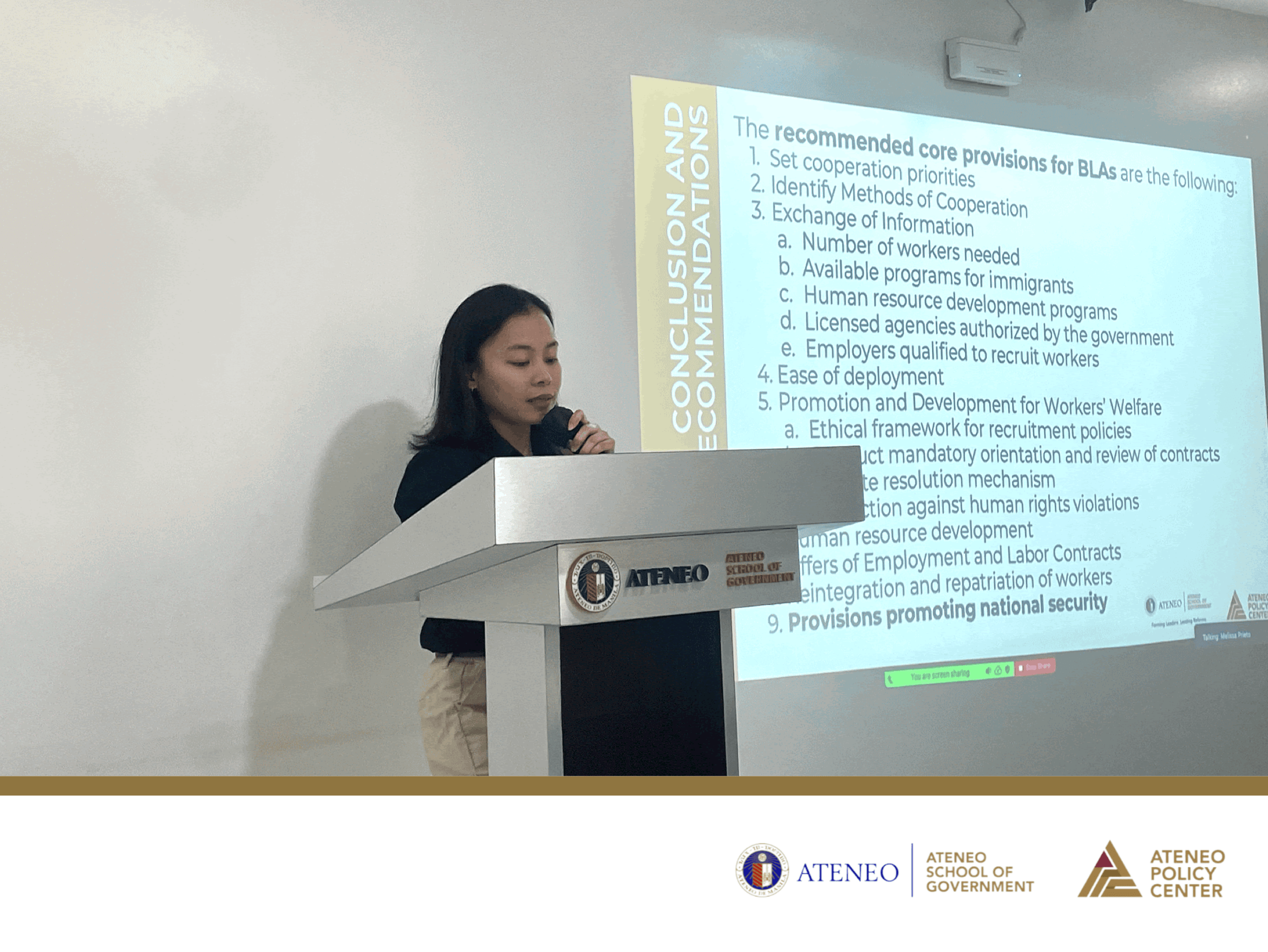
Representatives from the private and public sectors, such as the Department of Migrant Workers, Department of Health, Vital Strategies, OFW Hospital, Unilab Foundation, ThinkWell Philippines, IPSOS, and Asian Development Bank, provided insights on the papers presented. These include the relationship between increasing the salary of healthcare professionals vis-a-vis the hospital costs, the possibility of nurses taking on leadership roles, especially in rural areas, and how the nursing crisis should be addressed not only from a health sector perspective but as a whole sector approach.
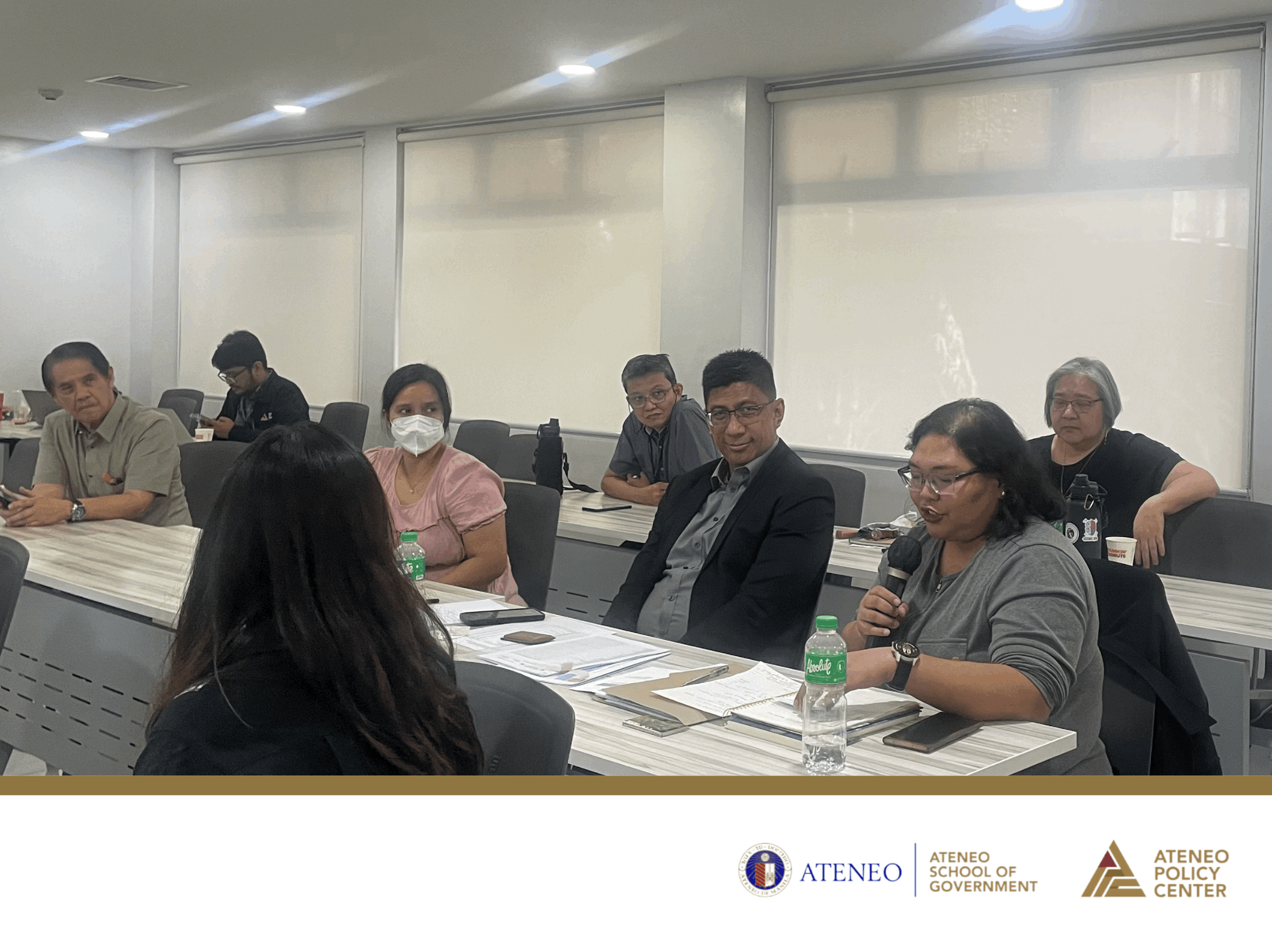
The two (2) working papers presented are under the APC’s Nursing Crisis Series. APC extends its appreciation to the following co-authors for their contribution to this initiative: Ronald U. Mendoza, PhD; Prof. Cristina M. Liamzon, PhD; Prof. Enrico C. Mina, DBA; Amb. Laura Quiambao del Rosario; and Atty. Darwin Mariano.
The brown bag is part of ASOG's efforts to advance the interests of Human Resources for Health (HRH), supporting the University's thrust in advancing Universal Healthcare.


